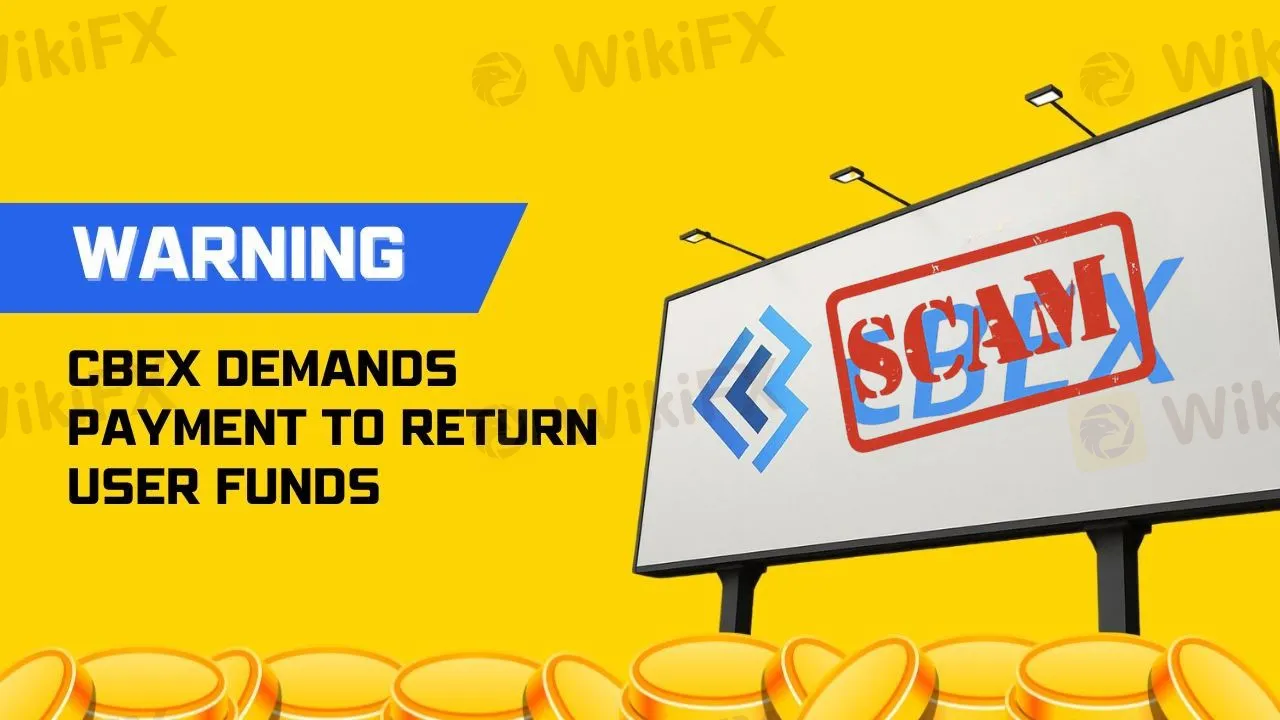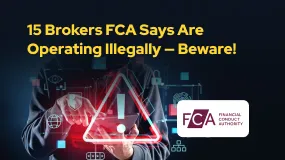简体中文
繁體中文
English
Pусский
日本語
ภาษาไทย
Tiếng Việt
Bahasa Indonesia
Español
हिन्दी
Filippiiniläinen
Français
Deutsch
Português
Türkçe
한국어
العربية
Warning: CBEX Demands Payment to Return User Funds
Abstract:CBEX, already exposed as a Ponzi scheme, is now demanding “activation fees,” further eroding public trust.

The embattled Nigerian crypto platform, Crypto Bridge Exchange (CBEX), has sparked renewed controversy by announcing a new withdrawal scheme that many users and experts have called into question. According to the latest update, users holding up to $1,000 in account balance must now pay a $100 activation fee in order to withdraw just 50% of their original funds. CBEX claims that these partial reimbursements will be released by June 20, 2025.
This requirement raises serious concerns. For a platform that has been accused of misappropriating funds from over 600,000 Nigerian users, charging a fee upfront in exchange for a partial payout only months later appears not only unreasonable but also highly suspicious. Critics argue that it may serve as a tactic to extract even more money from already defrauded victims.
As previously reported by WikiFX, CBEX gained popularity in Nigeria by promoting itself as a high-return digital asset platform. Investors were promised a 100% return within 30 days, often with added incentives for referrals. In reality, CBEX operated under a classic Ponzi structure—using new deposits to pay out earlier participants—until it abruptly froze withdrawals in April and went silent.
The original report on CBEXs collapse and fraudulent operations can be found here:
Many victims have since taken to social media to share their stories of lost savings, with some staging protests in cities like Lagos and Ibadan. The Nigerian Securities and Exchange Commission (SEC) has already declared CBEX illegal, but no formal investigations have been confirmed.
CBEXs latest offer has done little to rebuild trust. The notion that investors must pay to recover their own money—only partially and after a long delay—has been widely interpreted as a red flag. Financial analysts warn that such tactics are common in “exit scam” phases of fraudulent platforms.
Users are strongly advised to exercise caution and avoid making further payments to CBEX under the promise of recovery. For those seeking more information or clarity on the CBEX case, WikiFX will continue to track developments as they unfold.
Disclaimer:
The views in this article only represent the author's personal views, and do not constitute investment advice on this platform. This platform does not guarantee the accuracy, completeness and timeliness of the information in the article, and will not be liable for any loss caused by the use of or reliance on the information in the article.
Read more

15 Brokers FCA Says "Are Operating Illegally" Beware!
If a reputable regulator issues a warning about unlicensed brokers, it's important to take it seriously — whether you're a trader or an investor. Here is a list you can check out- be cautious and avoid getting involved with these scam brokers.

Scam Alert: Revealing Top Four Forex Scam Tactics Employed to Dupe Investors
Gaining and losing on forex trades is normal, but not scams that siphon out millions in no time! In this article, we will reveal forex scam tactics. Read on!

Watch Your Elders at Home: They Could be Victims of Investment Scams
Thousands of elderly people are being quietly robbed of their life savings by convincing online investment scams, often right under the noses of their families. Take care of your family members and their savings!

Harsh Truths About ATC Brokers Every Trader Must Know
Many regulated brokers hide the risks associated with them. They never talk about these risks and try to attract customers with appealing offers. Later on, customers discover these hidden risks and feel disappointed. Before you come across a similar situation, we want to let you know the risks involved with ATC Broker. Check out the article to discover the harsh truth about it.
WikiFX Broker
Latest News
PrimeXBT Launches MT5 PRO Account for Active Traders
eToro Expands into Singapore with MAS CMS Licence
Renault shares plunge 16% after French carmaker lowers guidance, appoints new interim CEO
Darwinex Launches INDX: A Revolutionary Investment Strategy for Traders
Top Forex Trading Scams to Watch Out for in 2025
Real Risk Factors with Admiral Markets ! Explained
5 Reasons to Know Why INFINOX Is a Standout Broker?
5 things to know before the stock market opens Wednesday
Trump's big beautiful bill' caps student loans. Here's what it means for borrowers
Weekly mortgage demand plummets 10%, as rates and economic concerns rise
Currency Calculator



